Caring for a senior dog can be heartbreaking. It’s difficult to watch your pet lose his vitality – especially as dogs age much faster than humans.
Knowing what to expect can make things easier though. Your dog will have different needs as he gets older, so adjusting to these requirements helps maintain his quality of life. Here are some common changes in senior dogs and tips for making your pet more comfortable.
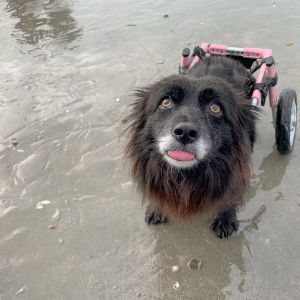 Dogs Age at Different Rates
Dogs Age at Different Rates
There’s a common saying that dogs age seven years for every one human year. While this can be useful for getting a general idea of life stage, the reality is that dogs age at different rates.
As a general rule, small dogs age slower. Tiny breeds, such as the papillon or chihuahua, often aren’t considered senior until they are 10 years old. For medium-size breeds, this threshold might be around 7-8 years of age.
Big dogs reach their twilight years much earlier. Giant breeds, such as the Great Dane, may be considered senior as young as five years old.
Every dog is different, so these guidelines aren’t always correct. But if you have a bigger dog, you should be prepared for the symptoms of aging to occur at a younger age.
Don’t Assume Behavioral Changes Are Due to Aging Along
It’s sometimes easy to assume that every change in a dog is a natural part of the aging process.
This might be the case, but your pet could also be suffering from a treatable disease or medical condition. Even if your vet can’t cure the problem, he or she might be able to make your pet more comfortable.
If you notice changes such as a loss of appetite, drinking more (or less), bad breath, weight loss or gain, coughing and lack of bladder control, contact your vet as soon as possible.
Older Dogs Gain Weight More Easily
A dog’s metabolism slows as he gets older. This means he burns fewer calories and is more likely to gain weight. Aside from putting pressure on sore joints, overweight dogs are susceptible to heart disease and diabetes.
You’ll need to counteract this by providing fewer calories. There are specially formulated senior foods that can help, and these often contain extra supplements that may help your aging pet.
Dietary changes should be gradual and you should keep your vet informed, however, as it’s still important for your pet to get the nutrients he needs. You should also be wary of your dog losing weight, as this can be a symptom of an underlying health condition.
Tip: It’s a good idea to weigh your dog every six weeks throughout his life. If you notice a change in weight, contact your vet for advice. Also look for common signs of weight gain, such as not being able to feel the ribs, a pot belly and loss of a defined waist.
Eye and Vision Deterioration
Sight loss can be a natural part of the aging process in dogs. You may notice your dog walks into objects, is often startled, or falls over. The eye itself can also appear red or swollen.
If your dog is struggling to see, try to keep furniture and other household objects in the same place. As your dog’s eyesight fails, he’ll rely more on his memory and other senses.
It’s also a good idea to leave a light on at night for your pet. Healthy dogs usually have excellent night vision, but it can be disorientating for a pet to wake up in the dark as his vision gets worse.
You should also talk to your vet about vision loss. Diseases such as conjunctivitis and cataracts can cause vision loss, but are often treatable.
Bad Breath and Dental Problems
Older dogs often suffer from oral disease – particularly if they haven’t had their teeth brushed regularly. An infection in the gums or teeth can cause continuous pain, and can also cause infection in other parts of the body.
For this reason, proper dental hygiene is essential for your dog’s well being. A vet may also recommend anesthetic to remove bad teeth. While there is always a risk to anesthetic, especially for older dogs, the pain relief is often worth it.
Joint Pain and Shorter Walks
Arthritis, hip dysplasia, and general joint pain are common problems for older dogs. These conditions can make moving more difficult and may reduce your pet’s motivation to play and exercise.
Daily walks are still essential, but you’ll need to reduce the distance and time. Multiple short walks throughout the day may also keep your dog happy without making his joints sore.
It’s not just the length of walks that’s important, however, but also when you take your dog out. Most dogs are stiff first thing in the morning, so it’s best to let his joints loosen up before walking. And if your dog seems to be suffering more than usual, a walk could make things worse.
Be particularly careful when walking in cold weather. Older dogs find it more difficult to regulate their body temperature, so you may need to buy a coat or sweater.
Playing indoor games is another great way to prevent boredom without aggravating joints. Games like “find the toy” can often be just as mentally tiring as a walk.
Other ways to relieve joint pain include supplementing omega-3 fatty acids, buying an orthopedic dog bed that supports the joints, and providing a ramp to get into the car. Your vet may also be able to prescribe medication to manage painful joints and improve your pet’s quality of life.
Dogs Can Suffer from Dementia and Alzheimer’s Disease
Just like humans, senior dogs may suffer from changes in their brains as they get older. This can cause strange behaviors, such as pacing, staring into the distance, not greeting you, or a general sense of confusion.
While these changes can’t be reversed, there are several types of medication that might help. If you notice differences in your dog’s behavior, contact your vet to learn more about potential treatments.
Regardless of the treatment options, it’s important to be considerate of your dog’s needs. Try to avoid loud noises or sudden movements – particularly when he seems confused. You should also warn guests and children that your dog shouldn’t be startled, as this could lead to a reflexive bite.
Remember, your dog’s hearing and eyesight might be poor, so he may not notice you when approached from behind.
Older Dogs Need the Toilet More Frequently
Despite eating less, older dogs often need the toilet more often. They should always be given the chance to go upon waking, after every meal, and immediately before going to bed.
Many senior dogs also need to go to the toilet throughout the night. This can be frustrating, but your pet probably doesn’t have the bladder strength to wait eight hours.
Senior Dogs Are More Anxious
It’s not unusual for an older dog to find certain situations more stressful. Some senior pets develop issues such as separation anxiety or fear of specific noises. Others just seem more agitated during the day.
If these behavioral changes aren’t caused by a medical condition, there are a few things you can do to help. Walking in quieter locations, making sure the floor is clear from clutter, and asking guests to give him time and space when they arrive, can all help reduce anxiety.
Summary
There are many changes that can happen to a senior dog. These range from superficial changes, such as a graying muzzle, to medical conditions and differences in behavior.
You should always discuss any changes with your vet. There are many treatments, medications, and lifestyle alterations that could help improve your dog’s quality of life.
Most importantly, be prepared to adjust your life depending on your pet’s new needs. While caring for your dog as he gets older can be time-consuming, it’s rewarding to know you’re giving him the best possible senior years.
 Thank you to guest author Richard Cross, Chief Editor of The Dog, Richard enjoys writing about dog health, training, and behavior. He is dedicated to helping pet owners develop a deeper understanding of their dog’s behavior and needs.
Thank you to guest author Richard Cross, Chief Editor of The Dog, Richard enjoys writing about dog health, training, and behavior. He is dedicated to helping pet owners develop a deeper understanding of their dog’s behavior and needs.
Related Articles:
Did we answer all your questions on "Aging care"?

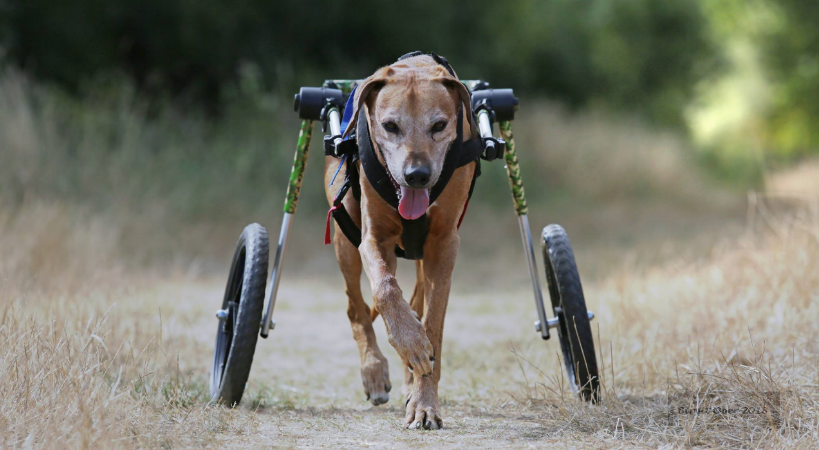
 Dogs Age at Different Rates
Dogs Age at Different Rates


 Thank you to guest author Richard Cross, Chief Editor of The Dog, Richard enjoys writing about dog health, training, and behavior. He is dedicated to helping pet owners develop a deeper understanding of their dog’s behavior and needs.
Thank you to guest author Richard Cross, Chief Editor of The Dog, Richard enjoys writing about dog health, training, and behavior. He is dedicated to helping pet owners develop a deeper understanding of their dog’s behavior and needs.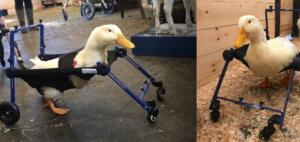
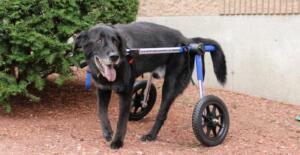
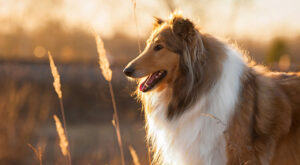
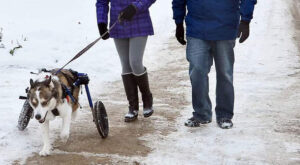

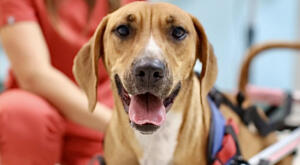
[…] who require a different kind of help. From emotional support to aiding with severe disabilities, aging or handicapped canine assistants can enrich our lives in wonderful […]